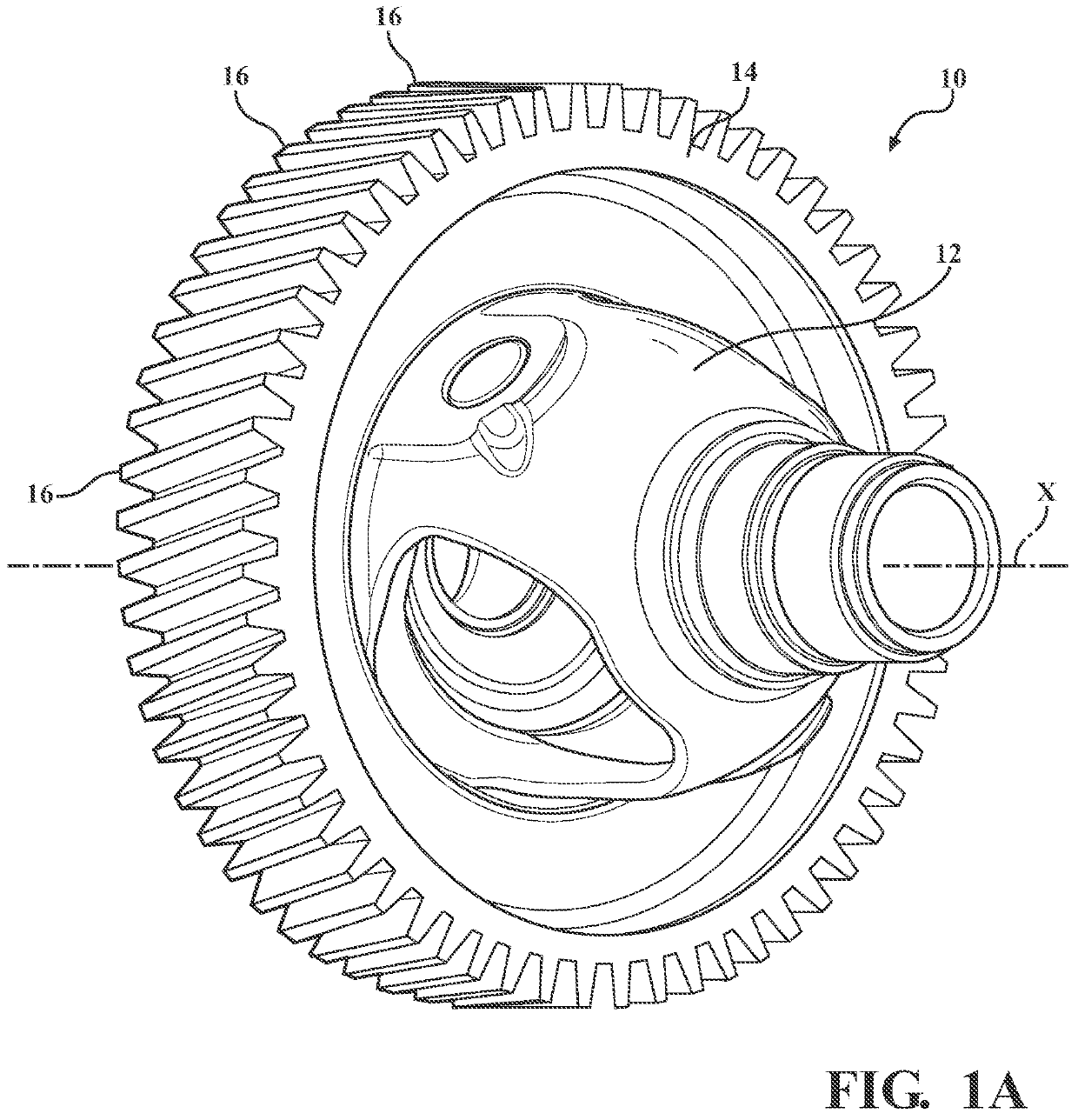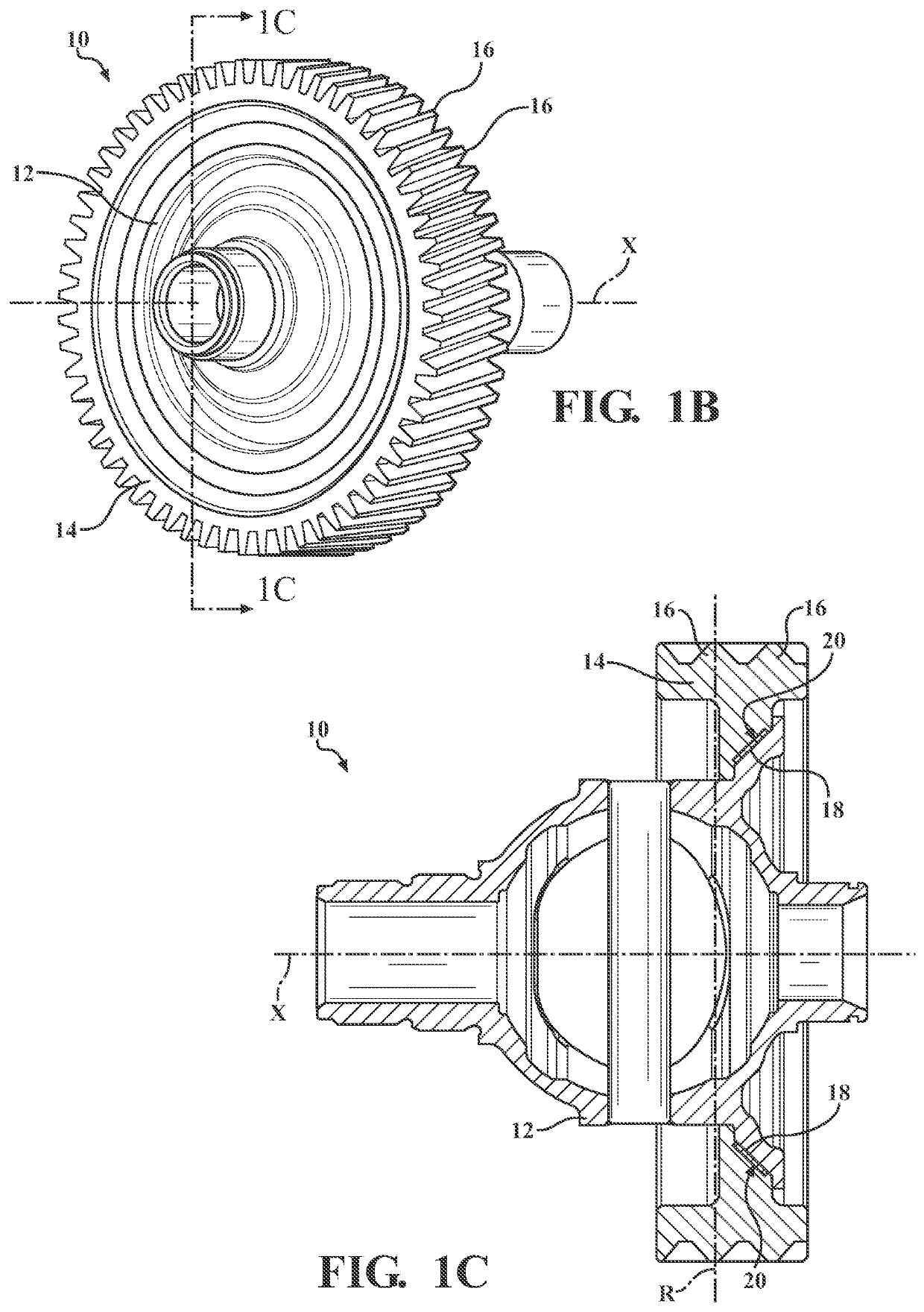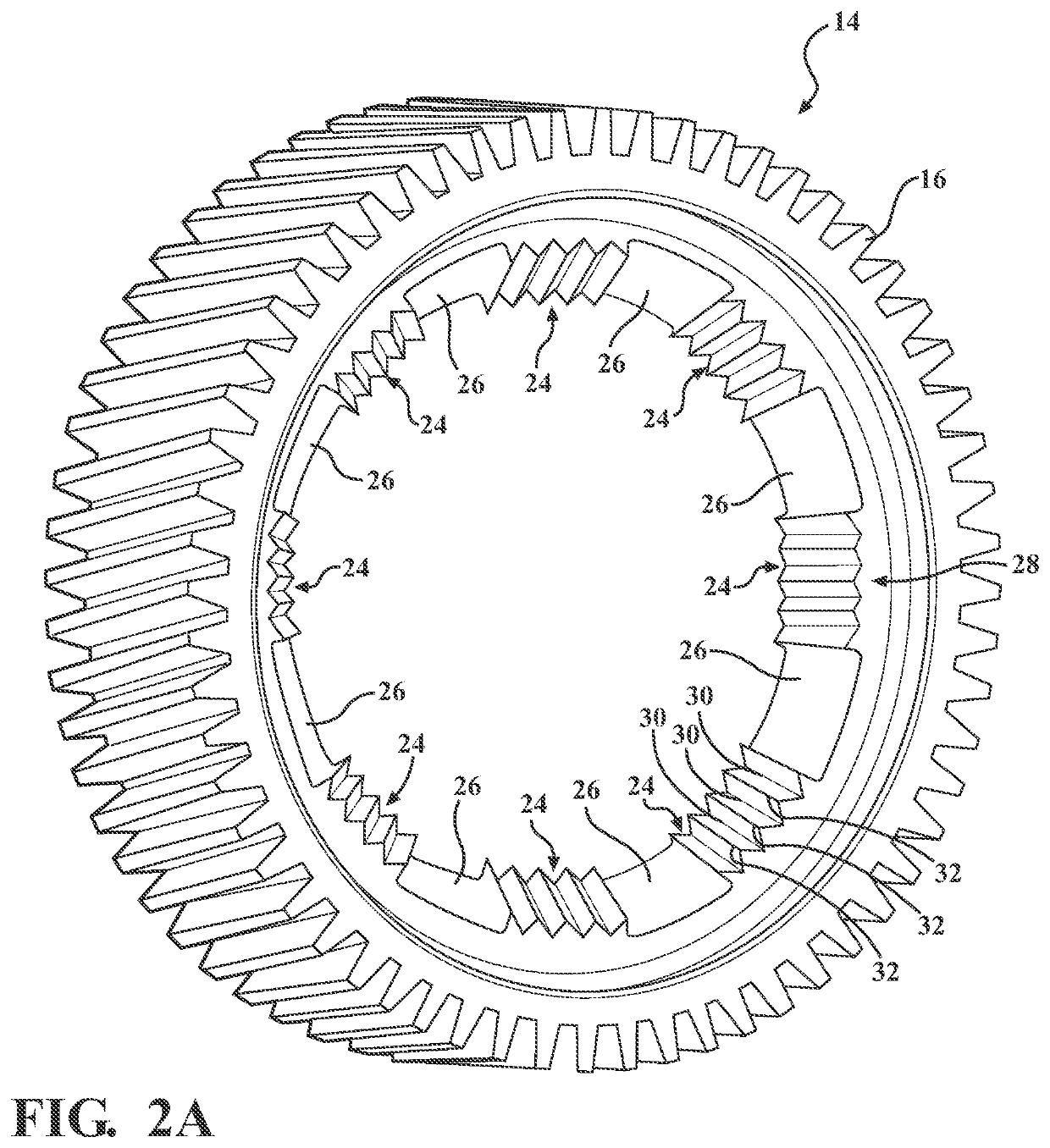High strength joints between steel and titanium
a high-strength, titanium technology, applied in resistance welding apparatus, storage discharge welding, metal-working apparatus, etc., can solve the problems of not being desirable for every component, brittle intermetallic phases are formed, and the joining of titanium to other materials through welding is difficult and ineffective, and achieves greater current density
- Summary
- Abstract
- Description
- Claims
- Application Information
AI Technical Summary
Benefits of technology
Problems solved by technology
Method used
Image
Examples
Embodiment Construction
[0027]A method of resistance welding is disclosed that includes forming weld joints, or bonds, between titanium-based materials and steel. A resulting workpiece assembly is also disclosed, including a joined titanium differential carrier case and a steel gear. Providing grooves on a faying surface, as well as providing the faying surfaces at angles with respect to the axis through which pressure is applied by the welding electrodes, or at angles with respect to axes of the two parts being welded together, reduce brittle intermetallics at the faying interface and results in high strength titanium-steel joints.
[0028]Referring now to FIGS. 1A-1C, a welded assembly is provided and generally designated at 10. The welded assembly 10 includes a titanium (or titanium alloy) differential carrier case 12 welded to a steel gear 14 bearing a plurality of gear teeth 16 on an external surface thereof. A plurality of weld joints 18 join together the carrier case 12 and the gear 14 at a faying inte...
PUM
| Property | Measurement | Unit |
|---|---|---|
| angle | aaaaa | aaaaa |
| angle | aaaaa | aaaaa |
| angle | aaaaa | aaaaa |
Abstract
Description
Claims
Application Information
 Login to View More
Login to View More - R&D
- Intellectual Property
- Life Sciences
- Materials
- Tech Scout
- Unparalleled Data Quality
- Higher Quality Content
- 60% Fewer Hallucinations
Browse by: Latest US Patents, China's latest patents, Technical Efficacy Thesaurus, Application Domain, Technology Topic, Popular Technical Reports.
© 2025 PatSnap. All rights reserved.Legal|Privacy policy|Modern Slavery Act Transparency Statement|Sitemap|About US| Contact US: help@patsnap.com



